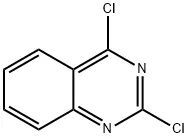
- +86-13363869198
- weimiaohb@126.com

Oct . 31, 2024 15:54 Back to list
Understanding Reaction Intermediates in Organic Chemistry and Their Role in Chemical Transformations
Reaction Intermediates in Organic Chemistry
In the realm of organic chemistry, reaction intermediates play a crucial role in understanding the mechanisms of chemical reactions. These intermediates, which are transient species formed during the conversion of reactants to products, are essential for elucidating the pathways through which reactions occur. Despite their fleeting existence, intermediates can provide invaluable insights into the nature of chemical transformations.
One common type of reaction intermediate is a carbocation. A carbocation is a positively charged species that occurs when a carbon atom has only three substituents, leading to an electron deficiency. These intermediates can be generated through various mechanisms, such as the ionization of alkyl halides or the protonation of alkenes. The stability of carbocations is influenced by factors such as hyperconjugation and resonance, with tertiary carbocations being more stable than secondary, and primary carbocations being the least stable. This stability hierarchy has significant implications for reaction rates and pathways, influencing the course of a reaction.
Another important class of intermediates is carbanions. Unlike carbocations, carbanions bear a negative charge and possess an excess of electrons. They are typically more stable when adjacent to electron-withdrawing groups or in resonance-stabilized frameworks. Carbanions often act as nucleophiles, participating in reactions such as nucleophilic substitutions and additions to carbonyl compounds. Their reactivity and stability are fundamental to a variety of organic synthetic strategies.
reaction intermediate in organic chemistry

Free radicals are also key intermediates in organic chemistry
. These species, characterized by an unpaired electron, are highly reactive and can initiate chain reactions, such as those seen in the halogenation of alkanes or polymerization processes. Understanding the behavior of free radicals is essential for developing new synthetic methodologies and controlling reaction outcomes.The identification and characterization of reaction intermediates can be challenging due to their short-lived nature. Techniques such as spectroscopy, chromatography, and mass spectrometry are often employed to study these species, enabling chemists to map out reaction pathways and understand the fundamental principles governing chemical behavior.
In summary, reaction intermediates are pivotal in organic chemistry, providing insights into the mechanisms of reactions. By studying these transient species, chemists can better predict reaction outcomes, optimize synthetic strategies, and develop new materials and methods. As research continues to evolve, the importance of understanding reaction intermediates will only grow, paving the way for innovative discoveries in the field of chemistry.
-
High Quality Bromazolam CAS 71368-80-4 – Leading Supplier & Factory Price
NewsJul.08,2025
-
Protonitazene (Hydrochloride) CAS 119276-01-6 Supplier - Top Manufacturers & Factories
NewsJul.08,2025
-
High Purity 162607-19-4 Manufacturer & Supplier Reliable 162607-19-4 Factory Price
NewsJul.08,2025
-
High Purity CAS 1379686-29-9 SR-9011 Supplier Trusted Factory Direct Sale
NewsJul.07,2025
-
High Purity 299-11-6 Manufacturer & Supplier Reliable 299-11-6 Factory Price
NewsJul.07,2025
-
High-Quality CAS 51022-70-9 Albuterol Sulfate Reliable Factories & Suppliers
NewsJul.06,2025